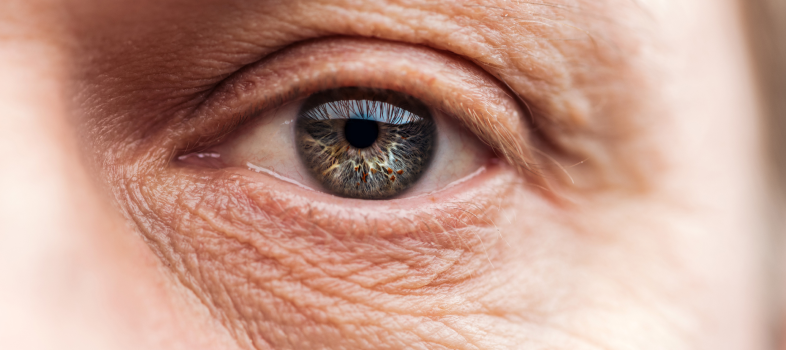- 541-884-3148
- info@klamatheyecenter.com
- 08:00AM to 5:00PM
Anti-VEGF Treatment
A Closer Look
What is Anti-VEGF Treatment?
Anti-VEGF treatment is a way to slow vision loss in people who have a condition called “wet” age-related macular degeneration.

What is Age-Related Macular Degeneration (AMD)
Age-related macular degeneration (or AMD) is the leading cause of vision loss in people 50 years or older in the United States. It involves damage to the part of the eye called the macula. The macula is a small but extremely important area located at the center of the retina, the light-sensing tissue lining the back of the eye. With AMD, dark areas may appear in your central vision.
The macula is responsible for your ability to see fine details clearly. You rely on your macula whenever you read, drive, or perform any other activity that requires seeing precise details, such as threading a needle.
A person with AMD loses the ability to perceive fine details both up close and at a distance. This loss of detailed vision affects only your central vision. The side, or peripheral, vision usually remains normal. For example, when people with AMD look at a clock, they can see the clock’s outline but cannot tell what time it is.
What is different about ''WET'' AMD?
There are two common types of AMD. Most people (about 90 percent) have a form of AMD called atrophic or dry AMD, which develops when the tissues of the macula grow thin with age. Dry AMD usually causes a slow loss of vision. A second, smaller group of people (about 10 percent) have a more serious condition called exudative or wet AMD. Wet AMD occurs when abnormal blood vessels grow underneath the retina. These unhealthy Vessels leak blood and fluid, which can scar the macul.
How does ANTI-VEGF slow vision loss?
Researchers who study wet AMD have found that a certain chemical in your body is critical in causing abnormal blood vessels to grow under the retina. That chemical is called vascular endothelial growth factor, or VEGF. Recently, scientists have developed several new drugs (anti-VEGF) that can block the trouble-causing VEGF. Blocking VEGF reduces the growth of abnormal blood vessels, slows their leakage, and helps to slow vision loss.
Approximately one-half of the patients who take anti- VEGF agents for wet AMD experience visual gain in the first year of treatment.

What can you expect from ANTI-VEGF treatment?
The anti-VEGF drug must be injected into your eye with a very fine needle. Your ophthalmologist (Eye M.D) will clean your eye to prevent infection and will administer an anesthetic to your eye to reduce pain. Usually, patients receive multiple anti-VEGF injections over the course of many months or years.
As with any medical procedure, there is a small risk of complications following anti-VEGF treatment. Any complications that might occur usually result from the injection itself, which in rare circumstances can injure the eye’s lens or retina or lead to an infection. For most people, though, the benefit of the treatment outweighs the small risk of injection injury.
What can you expect from ANTI-VEGF treatment?
Your ophthalmologist will determine if the treatment is appropriate for you. Only patients with the wet form of AMD can benefit from it.
In some cases, your ophthalmologist may recommend combining anti-VEGF treatment with other therapies. The treatment that’s right for you will depend on the specific condition of your macular degeneration.
Anti-VEGF treatment is a step forward in the treatment of wet AMD because it targets the underlying cause of abnormal blood vessel growth. The treatment may offer new hope to thousands of people diagnosed with wet AMD.
